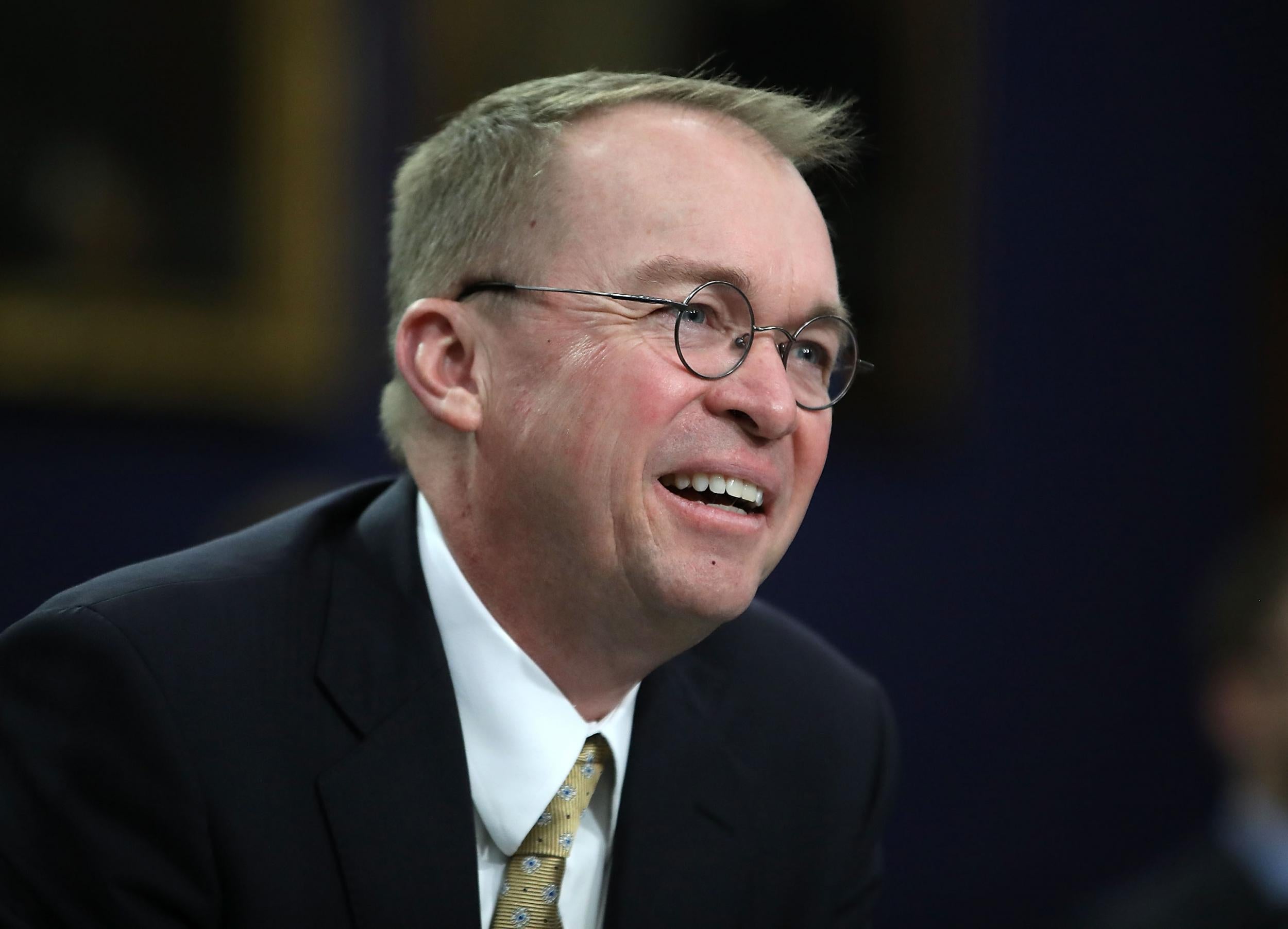Mick Mulvaney reportedly says he only talked to lobbyists who donated to him
“If you’re a lobbyist who never gave us money, I didn’t talk to you," White House Budget office director reportedly says

Your support helps us to tell the story
From reproductive rights to climate change to Big Tech, The Independent is on the ground when the story is developing. Whether it's investigating the financials of Elon Musk's pro-Trump PAC or producing our latest documentary, 'The A Word', which shines a light on the American women fighting for reproductive rights, we know how important it is to parse out the facts from the messaging.
At such a critical moment in US history, we need reporters on the ground. Your donation allows us to keep sending journalists to speak to both sides of the story.
The Independent is trusted by Americans across the entire political spectrum. And unlike many other quality news outlets, we choose not to lock Americans out of our reporting and analysis with paywalls. We believe quality journalism should be available to everyone, paid for by those who can afford it.
Your support makes all the difference.The director of the White House budget office has reportedly told financial industry insiders that he only met with lobbyists who had donated to his campaign during his time in Congress.
Mick Mulvaney, a former representative from South Carolina and the current director of the Office of Management and Budget, reportedly advised more than 1,000 bankers and lobbyists to donate to lawmakers in order to sway their opinions.
“We had a hierarchy in my office in Congress,” Mr Mulvaney said at an American Bankers Association (ABA) conference in Washington, according to the New York Times. “If you’re a lobbyist who never gave us money, I didn’t talk to you. If you’re a lobbyist who gave us money, I might talk to you.”
But, he added: “If you came from back home and sat in my lobby, I talked to you without exception, regardless of the financial contributions.”
In a tweet, a spokesman for Mr Mulvaney said the Times "got it wrong" about the director's speech.
"Director Mulvaney's speech today to the ABA made it clear that being from 'back home' is 'without exception' more important than money when visiting congressmen," wrote spokesman John Czwartacki.
Mr Mulvaney is also the interim director of the Consumer Financial Protection Bureau (CFPB) – a regulatory agency that he lobbied to abolish during his time in Congress. The CFPB did not immediately respond to The Independent's request for comment.
As director, Mr Mulvaney has worked to diminish the power of the bureau, placing a temporary freeze on hiring, rulemaking, and regulatory actions, and slowing down the implementation of new rules after that.
He told the bankers and lobbyists at the conference that he wanted to further reduce the power of the bureau, which was created to protect consumers after the 2008 financial crash. He urged them to persuade legislators to support his aims by donating to their campaigns.
According to the Times, Mr Mulvaney claimed trying to sway legislators through donations was one of the “fundamental underpinnings of our representative democracy”.
Among the changes the director said he wanted to make was shutting down public access to the CFPB’s consumer complaint database. The database received some 320,000 complaints last year, on products ranging from debt collection to credit cards, according to the bureau’s report to Congress.
Mr Mulvaney compared the database to a restaurant review website, and said he did not see anything in the 2010 law that created the bureau that required it to make the complaints public.
“I don’t see anything in here that says I have to run a Yelp for financial services sponsored by the federal government,” he said.
The director has already announced other plans for the CFPB, including a proposal to fund it through congressional appropriations instead of through the Federal Reserve. The change would make it easier for Congress to cut funding to the bureau.
In December, less than a month after Mr Mulvaney took over, the bureau changed its mission statement to say its first priority was "regularly identifying and addressing outdated, unnecessary, or unduly burdensome regulations”.
Join our commenting forum
Join thought-provoking conversations, follow other Independent readers and see their replies
Comments